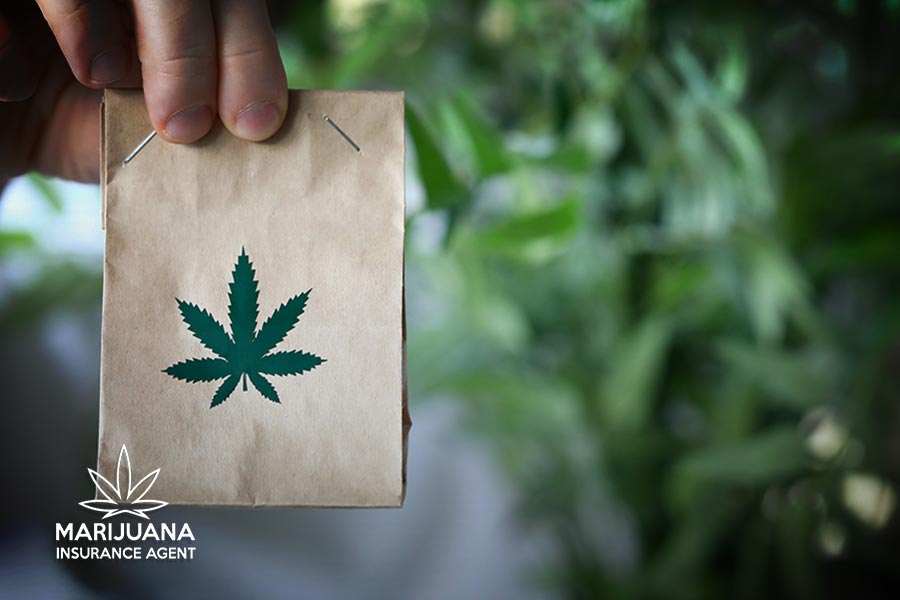Over $70 billion — that’s what a recent report is predicting will be the size of the regulated cannabis market globally by 2028. Although still a federally scheduled and prohibited substance, cannabis is legal for adult-use and/or medical in a growing list of states.
Even with the hindrance of the U.S. federal government, that recent report from Grand View Research, Inc. also identified that nearly 80% of the revenue generated by the cannabis market was generated in North America. But even so, obtaining insurance services for a cannabis-related businesses can be difficult, especially for delivery-only dispensaries.
Once considered an anomaly, delivery-only dispensaries became common sense during the pandemic and have adjusted customer expectations about availability. Many of these businesses rely on phone apps to obtain their delivery orders since tech giant Apple lifted the ban on cannabis delivery apps. With these new opportunities comes the need for specific kinds of insurance coverage — delivery-only dispensary owners and managers should review their policies to ensure the kind of coverage they have is appropriate for their business’s risks.
General Liability Insurance
While you may not need general liability insurance to obtain a cannabis license, it’s generally worth the cost. General liability can provide coverage for claims and legal fees resulting from property damage or bodily injury from third-parties against your business. A delivery-only service won’t need the typical brick-and-mortar types of coverage, as customers won’t be entering the facility, but general liability policies can also cover off-site accidents that happen during delivery.
Property and Product Liability Insurance
Property insurance does exactly what it sounds like for a cannabis business: covers the business’s property including facilities, equipment and signage. Whether something was stolen or damaged, property insurance is what can offer that kind of protection for a business. However, the trick with cannabis delivery coverage is that once the product is out of the facility and on the way to be delivered, the loss or damage is no longer covered as property. Product liability is similar, except instead of providing coverage against property damage, product liability insurance covers claims made related to product defects or if a product causes harm or unwanted side effects.
Cyber Insurance
Taking orders through an app or website sounds ideal, but that does make your site a more appetizing target for thieves. Details like payment information, home address and phone number, and demographic information are all stored necessarily to make a successful delivery, so having adequate cyber security and coverage is critical to protecting that information. Cyber insurance can help cover business interruption or loss of confidential information.
Business Auto Insurance
As discussed earlier, property insurance typically does not cover loss or damage of product once it’s left a business’s main facility. Business auto insurance may be able to fill that gap. It may be tempting to force delivery drivers to use their own vehicles and insurance, but most personal auto policies have exclusions against “business use” and won’t cover any damages incurred while on the job. Business auto insurance can provide that coverage you need to not be stuck with the bill for potential injuries and vehicle damage.
Cannabis delivery services aren’t going away anytime soon as the demand from customers grows, so it’s important to have the right kind of insurance coverage and identify any gaps that may leave you vulnerable. These different insurance products can provide that umbrella and protect your business for many years to come.

Leave A Comment